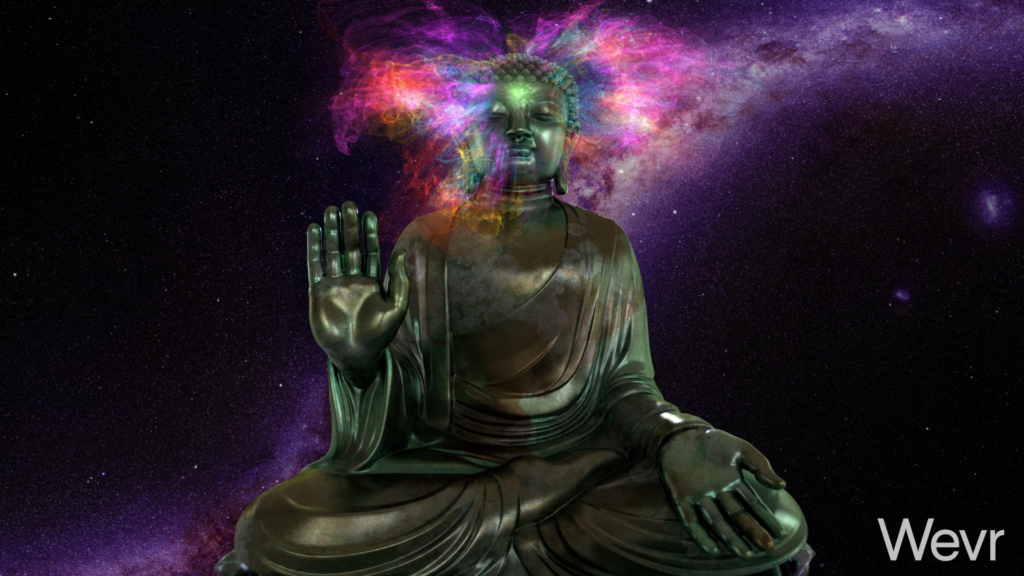Virtual reality startup Wevr is working some big names across multiple industries to bring fresh content to virtual reality. In addition to developing Jon Favreau’s Gnomes and Goblins, the studio has just launched its first project with Deepak Chopra called Finding Your True Self. Wevr has also curated Tyler Hurd’s Tribeca Film Festival VR hit, Old Friend, for VR. The company has launched a new premium subscription tier within its transport service. For a $20 annual subscription, fans will get access to Chopra’s new VR offerings, Hurd’s work, Reggie Watt’s Waves and theBlu: Season 1.
Anthony Batt, co-founder and executive vice president of audience and marketing at Wevr, told [a]listdaily that additional content will be added to the service. For the short term, the annual subscription model will be the focus, but Batt hopes to move to a monthly model in the future once there are more steady content for subscribers. “I’d like to see it go monthly because the more money we bring in, the more money we can distribute to creators,” Batt said. “We’ll have enough content for a yearly subscription, and $20 is a pretty low ask.”
With the new premium tier, Wevr is embracing the VR creative community and helping establish a sustainable business model in these early days of content creation and experimentation for a small but growing consumer audience. “We’ve been putting headsets on thousands of people for the last three years and all of them love the content we’re making and want to have access to it,” Batt said. “Transport is a way to reliably deliver the content we’re making and our partners are creating. It’s a symbiotic relationship with the early adopters of VR technology.”
Transport is currently running on HTC Vive and Samsung Gear VR and is in beta on Oculus Rift and Google Daydream. Batt said all platforms, including Sony’s PlayStation VR, will be rolled out by early 2017.
“Our business is linked to the purchase patterns of consumers on the hardware side, we’ll grow with the industry and we’ll support content creators,” Batt said. “From a high level, we think—pulling back from VR specifically—that subscription services are a good thing for everybody. They add some predictability to one’s business model. Like what we’ve seen with HBO or Netflix, when they get into a good grove with their audience they can provide the content they love.”
Batt said creatives continue to make great VR content and there’s a need for establishing a relationship between Wevr and the emerging audience. “That’s the way media is going to work in the future and VR won’t be any different,” Batt said.
Batt said Transport is focused on immersive and experience-based VR, not gaming. The company is looking for content that connects with the Transport brand.
“Wevr’s brand is high quality native VR,” Batt said. “Transport’s brand is about indie creators making high quality native VR. Our initial lineup of content goes from Tyler Hurd, to Reggie Watts, to Deepak Chopra and theBlu. These are all highly immersive, story-based, made-for-VR experiences. We’re not looking to make a space shooter game. That wouldn’t be on brand for us.”
Batt also wants to help VR makers who aren’t making games. Gaming has been a focal point for major platforms with Oculus, Sony, Samsung, Google and HTC all investing in game development. The non-gaming sector has received a lot of funding from investors, but it’s an area that Batt believes still needs help finding an audience.
“We think our partners have made some of the best VR in the market,” Batt said. “When a person walks away thinking that was great, it’s good for the entire VR industry.”
Wevr will continue to host stand-alone events across the country, inviting consumers to put on a headset and check out its content. “We’re physically putting together events so people can try VR without buying the headsets,” Batt said. “Even if it’s just thousands of people we’re reaching, that’s important. These events allow us focus on and develop a relationship with people who don’t have VR headsets but want to try VR.”
Batt said the heavy marketing Samsung is currently running, including television commercials with people experiencing Gear VR, is also good for the entire ecosystem. “Samsung’s amazing marketing is good for the entire industry,” said Batt. “It’s not even clear what people are doing, but it generates questions like: ‘what is that headset on their face?’ VR is the future and people are addicted to tech and the future. So this gets ads like that get the conversation going.”

